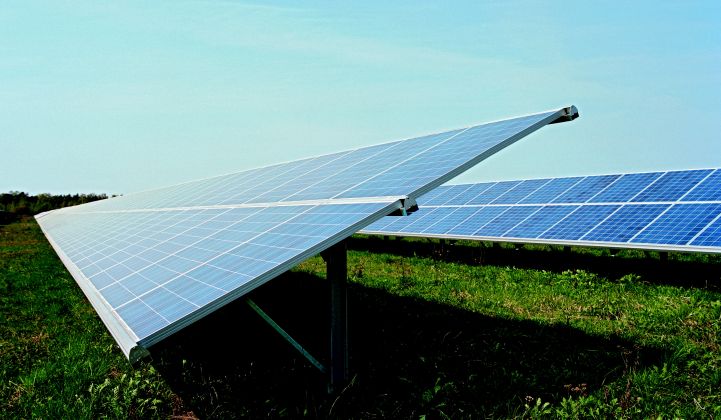The parent company of CEO Boris Schubert's Q.Cells North America looks to be acquired by Korea's Hanwha Group. There is a bid from Isofoton as well. (Read more about the pending Q-Cells SE [QCLSF] acquisition here.)
But Q.Cells NA is independent and solvent, according to a spokesperson for the firm. And Schubert, the firm's CEO, is optimistic that his organization can succeed as a PV engineering, procurement, and construction (EPC) firm in North America.
Schubert did note that his group had already served as an EPC provider in building 100 megawatts of PV farms in North America, on large projects in Ontario (the Starwood), and for Pacific Gas and Electric (PG&E) in California's Central Valley. He viewed Q.Cells as "the most successful non-U.S.-based integrator in North America." The firm also just closed on a 5-megawatt EPC project in Celina, Ohio.
Schubert said that an EPC provider like Q.Cells NA with insight into solar technology through the value chain back to cells makes for an EPC that can provide "competitive LCOE solutions." He also noted that Q.Cells SE's quality and long-term reliability mean that "not all modules are created equal." Q.Cells SE has shipped more than three gigawatts of solar cells in the last ten years.
"If you control everything from design to cell to O&M, that results in a performance improvement at the system level," contends Schubert. He claims, "The incentive era was the warm-up lap. The race starts now." Schubert suggested that not having a feed-in tariff, as in the U.S., promotes business innovations such as SunEdison's Power Purchase Agreement (PPA) business.
Q.Cells NA is a viable EPC, but an EPC needs working capital. If Q.Cells SE changes hands, does Q.Cells NA become "Hanwha-Q.Cells NA" and maintain the insight into the supply chain that the CEO heralds? Or does Q.Cells NA, as an independent entity, lose that differentiation?
Q.Cells SE is trading at $0.19 per share today. The stock was was valued at more than $100 per share in late 2007.



